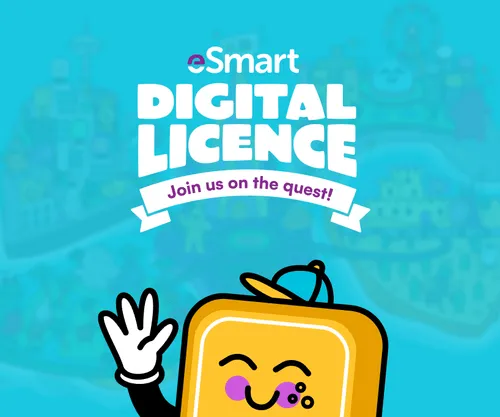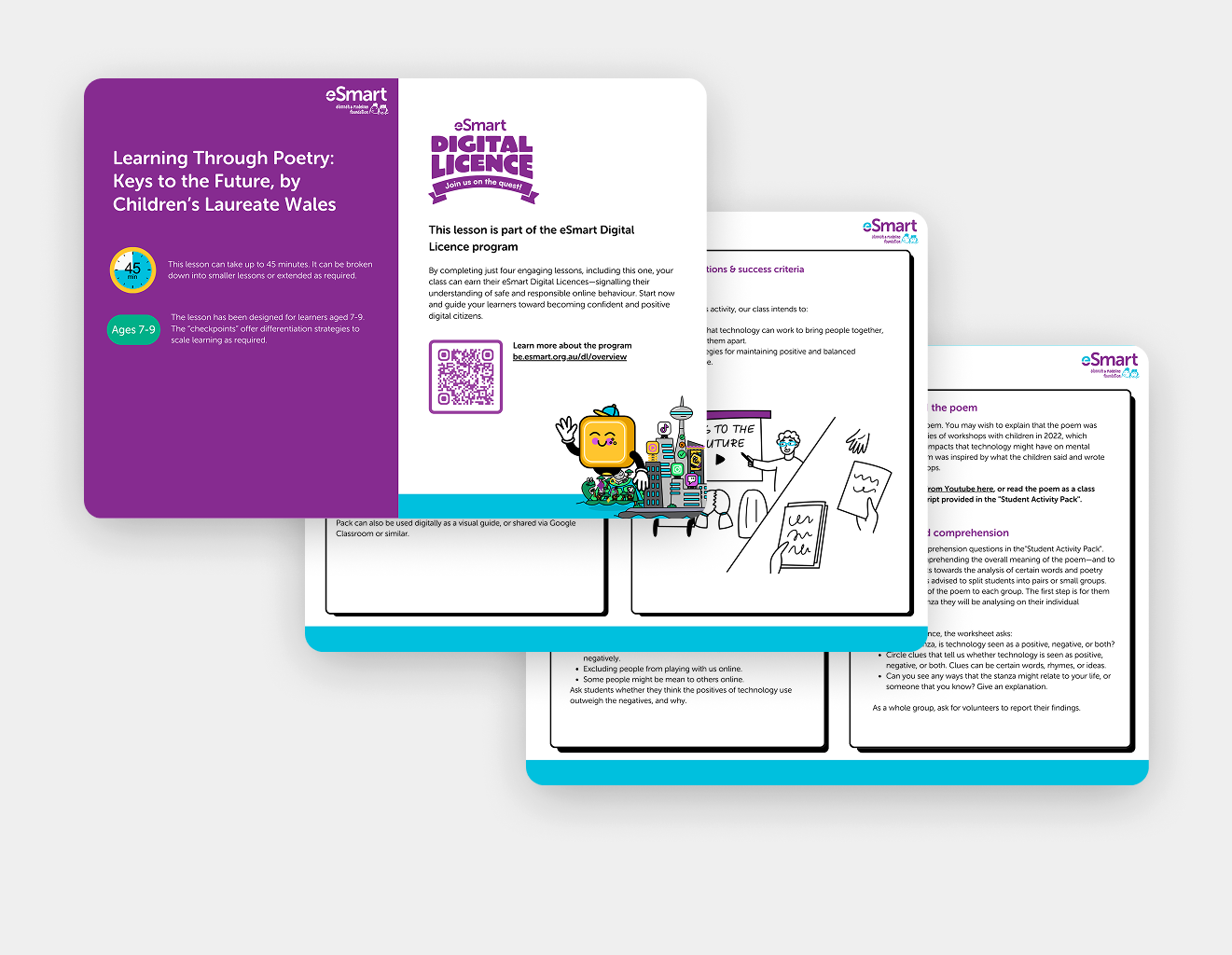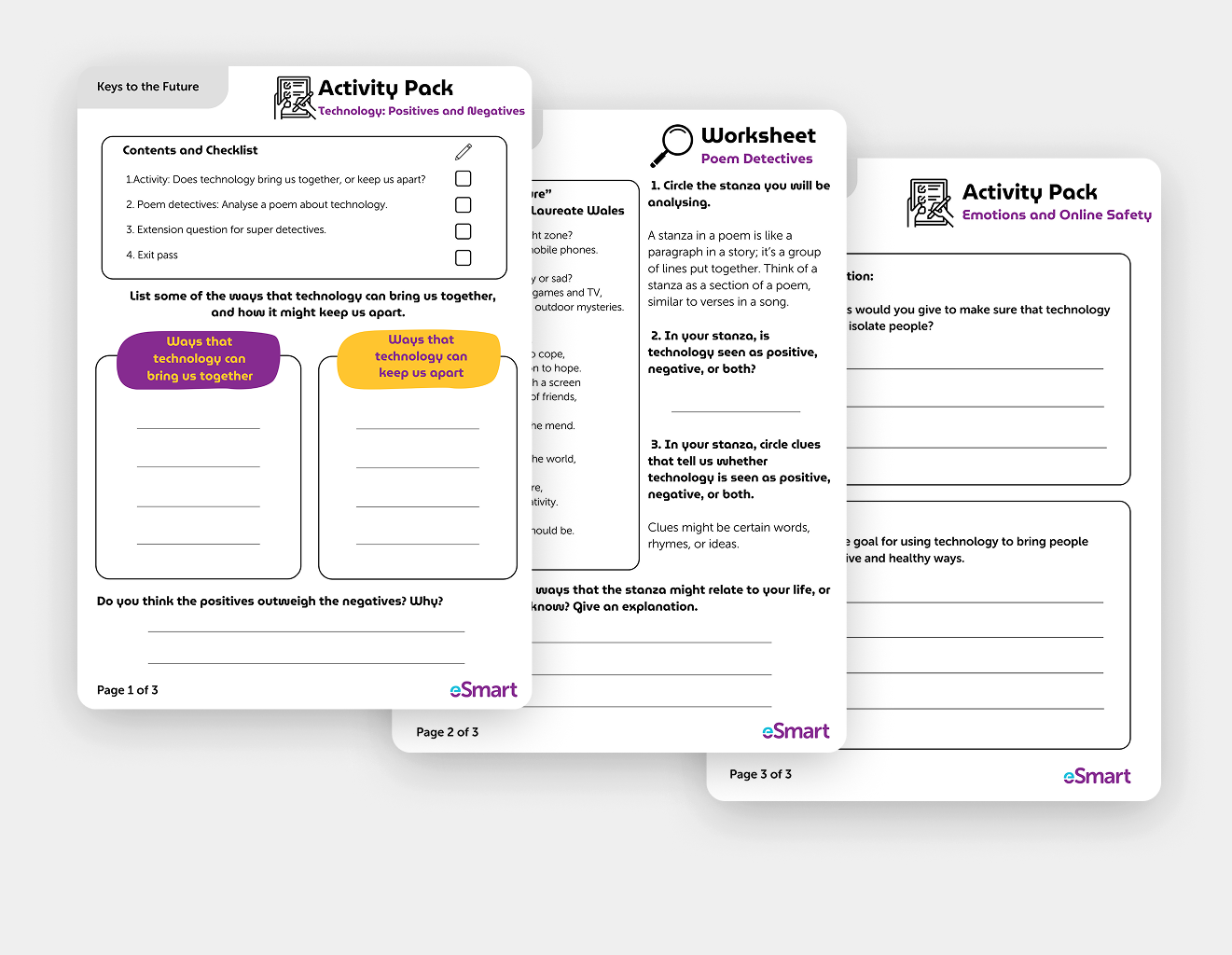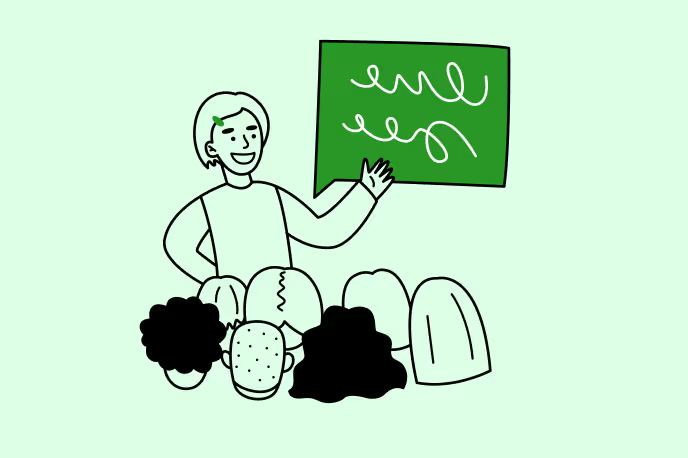Download Lesson Pack
Learning Through Poetry: Keys to the Future, by Children’s Laureate Wales

Child Safeguarding Statement
Some resources and activities may prompt a child to remember and potentially share an experience of harm. Make sure you’re familiar with your school's safeguarding policies and procedures so you can confidently report safety and well-being concerns.
Prepare students for the session by discussing: their right to be safe and respected; what to do if discussing online safety makes them feel uncomfortable or unsafe; and how to seek help if they feel or have felt unsafe. Use this resource available on the website.
Learning Through Poetry: Keys to the Future, by Children’s Laureate Wales
This activity introduces students to poetry, relates its key themes to their lives, addresses concerns about wellbeing and social interactions related to device usage, and encourages a balanced perspective on technology use.
Lesson details
Compulsion
About this Risk Area
Addresses excessive use of digital devices or online activities which can impact children's mental health, academic performance, and social relationships.
Example topics:
- Understanding the importance of balanced screen time.
- Developing healthy habits for managing digital device use and prioritising offline activities.
- Setting boundaries and practicing self-regulation when it comes to online gaming, social media, and other digital activities.
The resources for this risk area promote healthy relationships with technology and encourage positive social and emotional wellbeing.
This activity is based on the poem “Keys to the Future”, by the Children’s Laureate Wales. The poem was developed in partnership with The Royal College of Psychiatrists, following a series of poetry workshops with children that focused on the effects of technology on children’s mental health. Further information regarding the development of the poem can be accessed here on the Literature Wales site.
Learning Intentions
By completing this activity, our class intends to:
- Identify ways that technology can work to bring people together, and also keep them apart.
- Describe strategies for maintaining positive and balanced technology use.
Curriculum alignment
Australian Curriculum (Version 9.0)
The Australian Curriculum outlines the fundamental knowledge, comprehension, and abilities students are expected to acquire as they advance through the initial 11 years of schooling.
Years 3 and 4: General Capabilities
Personal and Social Capabilities
Relational awareness:
- Level 3: Identify how they can contribute to healthy relationships and manage challenging relationships.
Year 3: English
- AC9E3LA03: Describe how texts across the curriculum use different language features and structures relevant to their purpose.
- AC9E3LE02: Discuss connections between personal experiences and character experiences in literary texts and share personal preferences.
- AC9E3LE04: Discuss the effects of some literary devices used to enhance meaning and shape the reader’s reaction, including rhythm and onomatopoeia in poetry and prose.
- AC9E4LA03: Identify how texts across the curriculum have different language features and are typically organised into characteristic stages depending on purposes.
- AC9E4LE02: Describe the effects of text structures and language features in literary texts when responding to and sharing opinions.
- AC9E4LE04: Examine the use of literary devices and deliberate word play in literary texts, including poetry, to shape meaning.
CASEL Framework
The CASEL Framework creates a foundation for applying evidence-based, Social and Emotional Learning (SEL) strategies both at school and in the broader community. Its aim is to support the cultivation of SEL skills and environments that advance students’ learning and development.
- Self-management: The abilities to manage one’s emotions, thoughts, and behaviours effectively in different situations and to achieve goals and aspirations.
- Responsible decision-making: The abilities to make caring and constructive choices about personal behaviour and social interactions across diverse situations.
My Time, Our Place – Framework for School Age Care in Australia
The aim of My Time, Our Place: Framework for School Age Care in Australia (the Framework) is to assist educators to provide children and young people with opportunities to maximise their potential and develop a foundation for successful lifelong learning. The Framework has been designed for use by approved providers and school age care educators working in partnership with children and young people, their families and the community, including schools.
Outcome 2: Children and young people are connected with and contribute to their world.
Children and young people develop a sense of belonging to groups and communities and an understanding of the reciprocal rights and responsibilities necessary as active and informed citizens.
This is evident when children:
- Understand the concept that while digital technology can connect us, it is also vitally important to maintain our face-to-face and interpersonal connections too.







